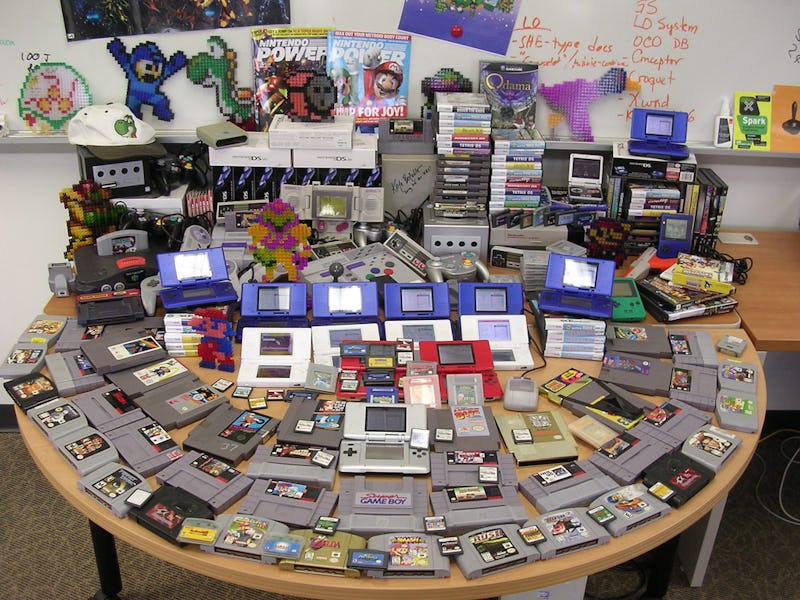Better Video and Board Games Won't Affect Gaming's Future Like Post-Work Ethics
In the future, we're going to spend a lot more time playing with ourselves (and each other).

Humans have always played games, but the gaming industry remained fairly small until the middle part of the twentieth century, when the emergent middle class started spending on leisure time activities. The day after Johnny Carson and Eva Gabor played Twister on Late Night, thousands of people lined up outside of Abercrombie and Fitch stores (stuff changes) to buy the game. It was big news at the time, but queueing for access to entertainment has become a norm. In essence, Kickstarter and video game pre order just make the lines longer. And they were plenty long anyway: $1 billion worth of Grand Theft Auto V games sold within the first three days of launch. The gaming industry boom has arrived in earnest. Why now and what does it mean?
The important thing to understand is that the boom is not a product of the improving quality of games. Research shows that people don’t care that much about image quality in games and that simple, stupid games, Flappy Bird and Angry Birds for instance, can go insanely viral. Perhaps you could say that tabletop games are, in fact, improving, as the internet carries the board game community into a golden age. But fantastic board games have always existed. Cosmic Encounter is 40 years old. What’s new isn’t the gameplay, it’s the nature of our relationship with the idea of playing games.
We have the time and there’s no stigma attached — less, anyway, than passive cultural consumption (i.e. TV watching).
We aren’t a post-work society — not yet, anyway. Is change coming? People have been saying we’ll curb our work enthusiasm for centuries; when economist John Maynard Keynes looked a hundred years in the future from 1930, he saw a leisurely 15 hours a week since. Fourteen years away, 3-hour workdays look fictional. But not completely ludicrous, with the rise of the automated workforce.
Americans are already working fewer hours. In 2000, the average American worker worked 1,836 hours, according to the Organization for Economic Cooperation and Development; by 2014, that number had fallen to 1,789 hours annually. Those extra 47 hours are enough for three dozen or so Settlers of Catan bouts, or two games of Twilight Imperium.
It’s not just the United States — The Atlantic noted the average worker’s annual hours in Greece have fallen by a quarter since the 1950s, and in Germany by 40 percent. (There’s no way to prove a connection, but Germany, as it goes, is the heart of the board game revolution: Settlers of Catan, the gateway drug to modern board games, was created by German designer Klaus Teuber; tabletop festival Spiel, in Essen, is the crown jewel of the game convention circuit.) Northern European countries are flirting with the idea of universal basic income; so is Silicon Valley.
We will play in our free time. Console gamers played an average of six hours a week in 2013 — up from five in 2011 — mobile playing time is steadily rising, and video games have reached the retirement home and are rapidly gaining ground: Nuns play Bejeweled; some 13 million retired Americans played video games in 2009; more recent data are scarce, but a 2013 survey of 140 seniors reported that 60 percent played video games.
Welcome to the ludological age.